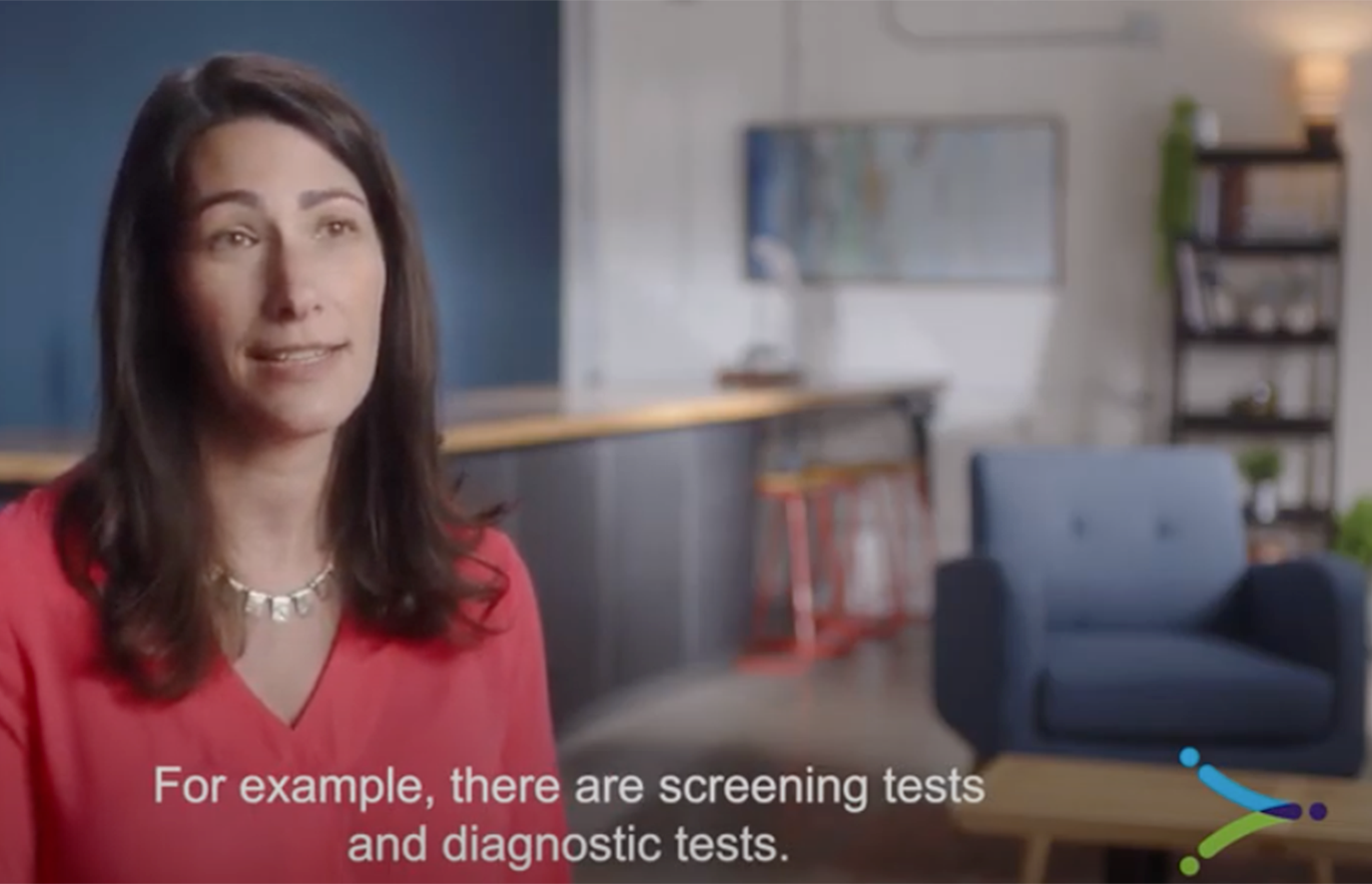Fragile X Carrier and Pregnancy
What is Fragile X Syndrome?
Fragile X syndrome is the most common inherited cause of intellectual disability. People affected with fragile X syndrome have some degree of developmental delay, intellectual disabilities, autism, learning disabilities, ADHD, seizures, and/or behavioral issues; however, there is a wide range of ability among affected individuals. People with fragile X syndrome may also have subtle physical differences and/or other health problems. While there is no cure for fragile X syndrome, early intervention, such as speech and occupational therapy, can help improve outcomes.
Approximately 1 in 4,000 males and 1 in 6,000-8,000 females have fragile X syndrome. It is estimated that 1 in 250 women is a carrier. Women can be carriers of fragile X syndrome even if they don’t have any family history of the condition. Carrier screening for fragile X syndrome is available to women who are considering starting a family, or women who are already pregnant.
If you are interested in learning more about carrier screening for fragile X syndrome, or need assistance with ordering this test, visit the Genome Care Navigator. If you’re pregnant or trying to get pregnant, learn more about the pregnancy genetic testing available to you.
Can Fragile X Syndrome be Detected During Pregnancy?
Expectant mothers who want to assess their chance to have a child with fragile X syndrome should undergo carrier screening. Because fragile X syndrome is only passed down from carrier mothers, carrier screening for the father of the pregnancy is not needed. Carrier screening can be performed either before or during a pregnancy. To learn more about carrier screening, visit preconception genetic testing. To learn more about these procedures, visit prenatal genetic testing.
Women who find out they are carriers of fragile X syndrome during the pregnancy have the option to test the pregnancy through chorionic villus sampling (CVS) or amniocentesis.
Fragile X Syndrome Carrier Screening
Carrier screening for fragile X syndrome can be performed using a blood sample, saliva sample, or buccal (cheek) swab and results are typically available in two to three weeks. Fragile X carrier screening analyzes a specific part of a gene called FMR1. The FMR1 gene is located on the X chromosome. Women typically have two X chromosomes and men typically only have one X chromosome.
Within this specific region of the FMR1 gene are pieces of DNA, which are represented by letters (CGG), that repeat over and over. There are four possible results that may come from this test:
- Negative: This result means that the person is not a carrier of fragile x syndrome due to an expansion of the CGG repeat region. Any CGG repeat count less than 45 is considered a negative result.
- Intermediate: If the CGG repeat count is between 45 and 55, the person is said to have an intermediate result. People with intermediate results are NOT at an increased risk to have a child with fragile X syndrome, and they will not be expected to develop any health complications themselves. However, there is potential that their intermediate number of repeats may expand into a premutation over the next few generations.
- Premutation: A CGG repeat count between 55 and 200 is called a premutation. A person who carries a premutation is at risk to have a child with fragile X syndrome. In addition, women with a premutation have an increased chance to develop premature ovarian insufficiency (POI) which leads to early menopause. Also, men and women with a premutation are at risk to develop a condition called fragile X-associated tremor/ataxia syndrome (FXTAS), which can develop in late adulthood and lead to neurological problems such as tremors and problems with balance and coordination.
- Full mutation: If more than 200 CGG repeats are present, that person has a full fragile X mutation. Males with a full mutation are expected to have symptoms of fragile X syndrome. However, only about half of women with a full mutation will have an intellectual disability. Full mutation carriers are not at risk to develop POI or FXTAS.
If you are interested in learning more about carrier screening for fragile X syndrome, or need assistance with ordering this test, visit the Genome Care Navigator. If you’re pregnant or trying to get pregnant, learn more about the pregnancy genetic testing available to you.
Who Should Get Fragile X Carrier Screening During Pregnancy?
Fragile X syndrome is inherited from mothers who carry a premutation in the FMR1 gene. Men can carry premutations and, though they would not be at an increased risk to have a child with fragile X syndrome, all of their daughters would be premutation carriers. Also, men who are premutation carriers for fragile X syndrome are at an increased risk for FXTAS. Therefore, it is recommended that anyone with a family history of fragile X syndrome consider carrier screening for themselves.
Other people who should consider carrier screening for fragile X syndrome include:
- People with a family history of unexplained intellectual disability, developmental delay, or autism
- Women with a history of unexplained POI
Even if a woman does not meet any of these criteria, she may still undergo carrier screening for fragile X syndrome if she wants to.
Pregnancy genetic counseling is available to individuals who are considering carrier screening for fragile X syndrome. Meeting with a genetic counselor may be especially helpful if you have a family history of unexplained intellectual disability, developmental delay, or autism or if you have a history of POI.
Common Questions About Fragile X Carriers & Pregnancy
Can a Fragile X Carrier Have an Unaffected Child?
Yes. A woman who is a carrier of a premutation for fragile X syndrome has a 50% chance to pass down her copy of the X chromosome that does not carry the premutation. This would result in a child who does NOT have fragile X syndrome.
If the woman who is a carrier happens to pass down her copy of the X chromosome that does carry the premutation, that does not always mean that her child will be affected. Depending on the specific number of CGG repeats, the FMR1 gene may not expand to a full mutation. In this case, the woman’s child would also be a premutation carrier, but would not be affected.
Women who are premutation carriers for fragile X syndrome also have the option to consider alternative reproductive options. Options like IVF with preimplantation genetic testing for the embryo, or using an egg donor, can ensure that the woman who is a carrier will have an unaffected child.
Does Fragile X Affect Fertility?
Approximately 20% of women with a fragile X syndrome premutation will experience premature ovarian insufficiency (POI), which decreases the quality and number of eggs in the woman’s ovaries. This may lead to decreased fertility and early menopause. Women who are carriers of a premutation should consider genetic counseling to discuss risks to their offspring, risks to themselves, and the various reproductive options, such as use of an egg donor or in vitro fertilization with preimplantation testing of the embryo, that are available.
Learn more about infertility and genetics and how you can test for infertility related to genetics.
My Baby Has Fragile X Syndrome. Now what?
If you discover during your pregnancy that the baby will have fragile X syndrome, you can begin to make a plan for the future, which could include changing the course of your pregnancy, finding the right doctor for your child, learning about treatments that are available and research that is being done, and building a support system before the baby is born.
Can Fragile X Be Passed from Mother to Daughter?
Yes. A woman who is a carrier of a full mutation or a premutation for fragile X syndrome has a 50% chance to pass down the copy of her X chromosome with the full/premutation on it. If that happens, and the premutation expands to a full mutation, the woman’s child could potentially have fragile X syndrome whether they are male or female.
In this scenario, if the baby was a boy, he would be expected to have symptoms of fragile X syndrome as he grows. If the baby was a girl, there would be a 50% chance that she would have an intellectual disability. Girls with a full mutation who do not have an intellectual disability may still experience some learning delays, anxiety, depression, or other features of fragile X syndrome.
If a woman who carries a premutation passes the premutation down to her child, and it does not expand into a full mutation, then her child will also be a carrier of fragile X syndrome. If her child was a daughter, she would be at risk for POI and FXTAS, and could potentially have a child with fragile X syndrome in the future. If the child is a son, he would be at risk for FXTAS, but would not be expected to be at risk to have a child with fragile X syndrome.







